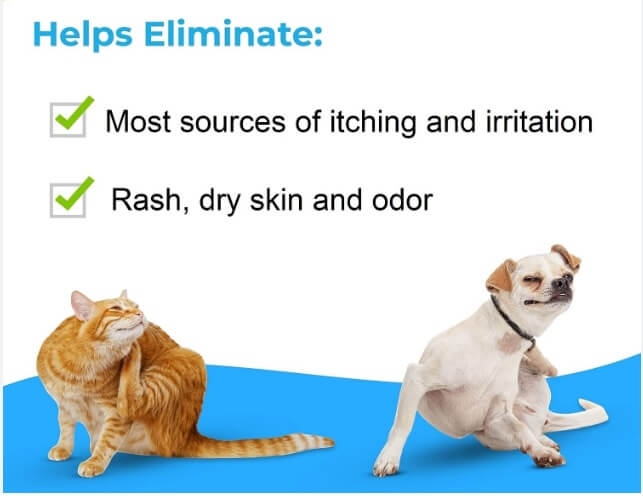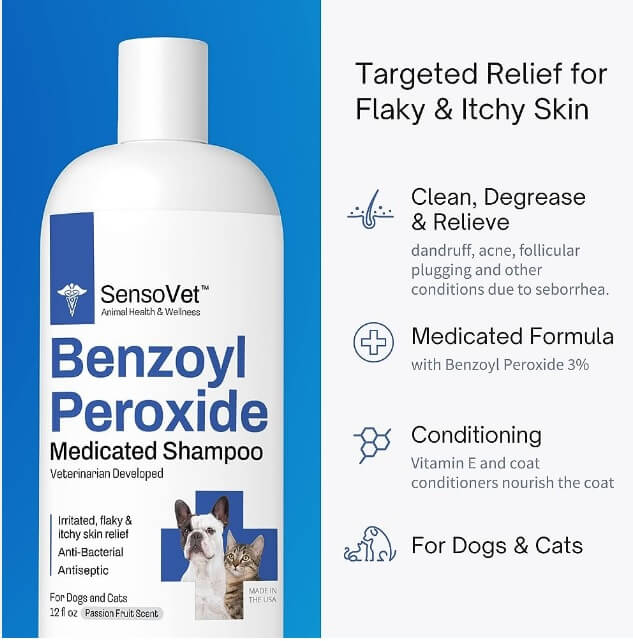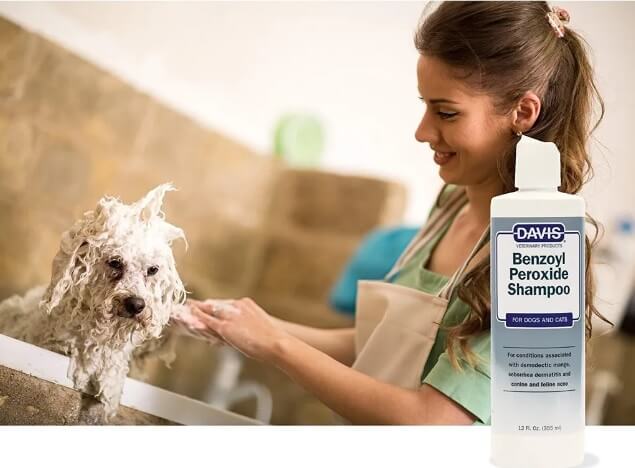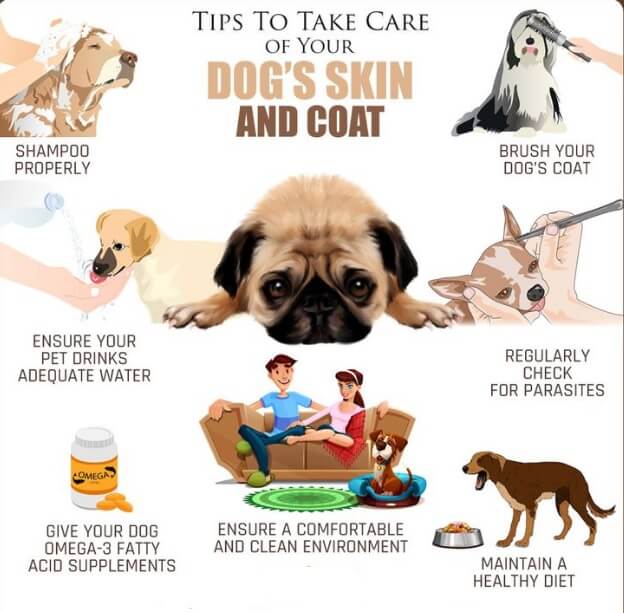Dogs, known for their loyal companionship, are often cherished members of families. However, despite being well-cared for, dogs can suffer from various health conditions, including dermatitis. Dermatitis in dogs refers to inflammation of the skin that can cause discomfort and distress.
In recent years, benzoyl peroxide shampoo for dogs has emerged as a potential solution for managing this condition. This article aims to explore the effectiveness and benefits of using benzoyl peroxide shampoo specifically formulated for dogs with dermatitis. By understanding how this shampoo works and its potential advantages, dog owners can make informed decisions regarding their pet’s skincare regimen.
Additionally, proper usage instructions and additional tips for maintaining overall skin health will be provided to assist dog owners in ensuring the well-being of their beloved pets. This article caters to an audience interested in serving others by providing optimal care for their canine companions.
Understanding Dermatitis in Dogs
Dermatitis in dogs is a multifactorial inflammatory skin condition characterized by erythema, pruritus, and the formation of papules, pustules, and crusts. It is essential to understand this condition as it can cause discomfort and distress for our furry companions.

Preventing dermatitis involves identifying common causes that trigger the inflammatory response. These triggers can range from environmental factors such as allergens or irritants to underlying health conditions or parasites like fleas. By recognizing these factors, pet owners can take proactive measures to minimize exposure and prevent flare-ups.
Regular grooming practices, maintaining a clean living environment, and using suitable shampoos are recommended methods for managing dermatitis in dogs. Additionally, incorporating benzoyl peroxide shampoo into their grooming routine may provide additional benefits in reducing inflammation and preventing secondary infections commonly associated with this skin condition.
How Benzoyl Peroxide Shampoo Works
Benzoyl peroxide shampoo for dogs works by harnessing its antimicrobial properties to effectively combat bacterial and fungal infections on the skin.

The active ingredient, benzoyl peroxide, acts as an oxidizing agent that kills bacteria and fungi by releasing oxygen free radicals.
Additionally, this shampoo has soothing and healing effects on the skin by reducing inflammation and promoting skin cell regeneration.
The Antimicrobial Properties of Benzoyl Peroxide
The efficacy of benzoyl peroxide in treating bacterial and fungal infections has been extensively studied in veterinary medicine.
Benzoyl peroxide possesses strong antibacterial properties, making it effective against a wide range of bacteria commonly found on the skin of dogs. It works by releasing oxygen upon contact with the skin, creating an aerobic environment that inhibits the growth and survival of bacteria.
Additionally, benzoyl peroxide has antifungal properties that help combat fungal infections such as Malassezia dermatitis, which is commonly associated with itching and inflammation in dogs. The mechanism of action against fungi involves disrupting the cell membrane integrity and inhibiting essential enzymatic processes required for their survival.
Overall, benzoyl peroxide shampoo provides a dual action approach to address both bacterial and fungal infections in dogs, helping to alleviate symptoms and promote healthy skin.
Soothing and Healing Effects on the Skin
Soothing and healing effects of benzoyl peroxide shampoo for dogs can be compared to a gentle breeze on a summer’s day, providing relief and promoting skin health. This product possesses remarkable healing properties due to its antimicrobial action against bacteria and fungi commonly found on the skin.
By targeting these microorganisms, benzoyl peroxide helps alleviate symptoms associated with various skin conditions, such as itching, redness, and inflammation. Additionally, it has therapeutic effects that aid in the restoration of damaged skin by accelerating the natural healing process.
The shampoo’s formulation allows for deep cleansing without causing excessive dryness or irritation. Its gentle yet effective action ensures that the dog’s skin is soothed and nourished during regular use, resulting in improved overall skin health.
Benefits of Using Benzoyl Peroxide Shampoo for Dogs
One notable advantage of utilizing benzoyl peroxide shampoo for dogs is its ability to effectively combat skin infections and alleviate the discomfort associated with them. Regular grooming is essential for maintaining a dog’s overall health, as it helps prevent the development of skin infections. Benzoyl peroxide shampoo can aid in this process by removing excess oil, dirt, and debris from the dog’s coat and skin.

This helps to keep the pores clean and reduces the likelihood of bacterial or fungal growth that could lead to infections. Additionally, benzoyl peroxide has antimicrobial properties that further contribute to preventing and treating such infections.
By using this shampoo regularly, dog owners can ensure their pets have healthy skin and avoid unnecessary discomfort caused by skin infections.
- It provides relief from itching and irritation.
- Promotes faster healing of wounds or lesions.
- Reduces redness and inflammation on the skin.
- Helps control excessive shedding.
- Leaves the dog’s coat looking shiny and healthy.
How to Properly Use Benzoyl Peroxide Shampoo
To ensure proper usage of this specialized cleansing product, it is crucial to follow the recommended guidelines when applying the solution onto your furry companion’s coat. Benzoyl peroxide shampoo for dogs should be used according to the instructions provided by a veterinarian or on the product label. It is important to use the proper dosage and avoid excessive application, as this can lead to skin irritation or other adverse effects.

The shampoo should be gently massaged into the dog’s coat, focusing on areas with skin issues such as dryness or excessive oiliness. After allowing the shampoo to sit for a few minutes, thoroughly rinse it off with warm water. It is essential to monitor your dog after using benzoyl peroxide shampoo and contact a veterinarian if any potential side effects occur, such as redness, itching, or swelling.
| Dosage | Side Effects |
|---|---|
| Use as directed by veterinarian or product label | Skin irritation |
| Redness | |
| Itching | |
| Swelling |
By following these guidelines and monitoring your pet’s response, you can ensure that benzoyl peroxide shampoo is used safely and effectively for your dog’s skin health needs.
Other Tips for Maintaining Your Dog’s Skin Health
Another important aspect of maintaining your dog’s skin health is to regularly groom them and keep their coat clean. Grooming helps remove dirt, dead hair, and debris that can accumulate on the skin and cause irritation. Additionally, it allows you to inspect your dog’s skin for any issues such as rashes, dryness, or hot spots. Regular brushing also stimulates blood circulation and distributes natural oils throughout the coat, promoting a healthy skin barrier.

When it comes to addressing dog skin allergies or other skin issues, some pet owners prefer using natural remedies. These remedies can include soothing oatmeal baths, coconut oil applications to moisturize dry skin, or chamomile tea rinses for itch relief. However, it is important to remember that not all natural remedies are suitable for every dog or condition. It is always recommended to consult with a veterinarian before trying any alternative treatments for your pet’s skin issues.
See Also:
- What Is Giardia In Dogs
- Can Dogs Get Lice
- Can Dogs Use Human Shampoo
- Spirit Dog Training
- Can Dogs Have Nightmares
- How To Start A Dog Rescue
- When Can Puppies Leave Their Mom
- Dog Stand
- Dog Playground Equipment
- Can You Bathe A Puppy At 5 Weeks Old
- Do Dogs Remember Their Parents
- Why Does My Dog Paws Smell Like Fritos
Conclusion
Benzoyl peroxide shampoo is a medicated shampoo that can be used to treat a variety of skin conditions in dogs, including seborrhea, acne, and hot spots. It works by killing bacteria and fungi, and by exfoliating the skin. Benzoyl peroxide shampoo is generally safe for dogs, but it is important to use it as directed by your veterinarian.If you are considering using benzoyl peroxide shampoo for your dog, it is important to talk to your veterinarian first. They can help you determine if it is the right treatment for your dog’s skin condition and can recommend a safe and effective product.
If you can’t find the right dog for you to adopt locally, please consider adopting a dog from Bone Voyage Dog Rescue. We’ll fly with your dog to you.
Frequently Asked Questions
Can benzoyl peroxide shampoo be used on puppies?
Benzoyl peroxide shampoo can be used on puppies, but it is important to follow the instructions and consult a veterinarian. Benzoyl peroxide shampoo is beneficial for adult dogs as it helps treat skin conditions and control excessive oil production.
Is benzoyl peroxide shampoo safe for dogs with sensitive skin?
Alternatives to benzoyl peroxide shampoo should be considered for dogs with sensitive skin. While benzoyl peroxide has benefits, it may cause irritation in some cases. Exploring gentler options that cater to the needs of sensitive skin is recommended.
How often should I bathe my dog with benzoyl peroxide shampoo?
Frequent bathing with benzoyl peroxide shampoo may worsen dry skin in dogs. It is advisable to consult a veterinarian for guidance on suitable alternatives, considering the specific skin condition of the dog.
Can benzoyl peroxide shampoo be used on cats or other pets?
Benzoyl peroxide shampoo, the holy grail for dogs battling skin issues, sadly isn’t suitable for cats or other pets. However, fret not! There are alternatives to address your feline friend’s needs effectively and safely.
Are there any potential side effects of using benzoyl peroxide shampoo on dogs?
Potential risks of using benzoyl peroxide shampoo on dogs include skin irritation, dryness, and allergic reactions. It is important to consider alternative treatments and consult with a veterinarian to ensure the best course of action for the pet’s specific condition.
